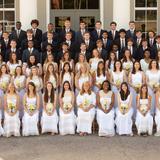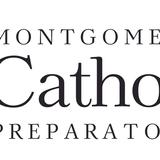Do you remember playing in the mud and making mud pies when you were a kid When was the last time your child made a mud pie At GracePointe CDC we play in the mud every day! We believe children learn through their play and that they must practice playing to become good students in big school.
We are not your typical Montgomery mother's day out; you will not find worksheets at our school, but you will see ample learning taking place.
We provide a variety of messy (sensory) play with paint, mud, water, shaving cream, and sand.
Children must first learn to control their environments before they can control themselves.
Children learn to read by being able to decode symbols.
They do this by learning to organize their environment through sorting, classifying, and seriating objects.
This is why we spend time in block, fine motor, and sensory play.
Children cannot comprehend what they read unless they can see a story in their heads.
To be able to see a story, they must be able to tell a story.
We learn to tell and act out stories in dramatic play, circle time, and literacy circle.
If children can act a story, they can comprehend what they read.
The more children practice play, the deeper the level of learning.
At GracePointe we aren't practicing Kindergarten by sitting at tables and doing worksheets; rather, we are preparing children for Kindergarten by teaching them and practicing life skills, such as making choices, staying on task, following directions, and learning social skills.
Quick Stats (2025)
- School Type: Early Childhood / Day Care
- Grades: Nursery/Preschool-Prekindergarten
- Enrollment: 80 students
- Yearly Tuition: $155
- Application Deadline: None / Rolling
- Source: National Center for Education Statistics (NCES)
School Overview
School Type
Religious Affiliation
Grades Offered
Grades Nursery/Preschool-Prekindergarten
Year Founded
1974
Summer School Offered
Yes
Student Body
Total Students
80 students
Student Body Type
Co-ed
% Students of Color
13%
State avg.: 24%
Academics and Faculty
Total Classroom Teachers
15 teachers
Student : Teacher Ratio
5:1
National avg.: 13:1
Tuition and Acceptance Rate
Admission Deadline
None / Rolling
Yearly Tuition Cost
Tuition Notes
3 days a week, Tuesday, Wednesday, Thursday=155/mo
4 days, above+ Monday=190/mo
Extracurriculars
Total ExtracurricularsTotal Extra-curric.
1 extracurricular
ExtracurricularsExtra-curric.
Big Green Bus
Source: National Center for Education Statistics (NCES)
Frequently Asked Questions
How much does GracePointe Child Development Center cost?
GracePointe Child Development Center's tuition is approximately $155 for private students.
When is the application deadline for GracePointe Child Development Center?
The application deadline for GracePointe Child Development Center is rolling (applications are reviewed as they are received year-round).
School Calendar
View the GracePointe Child Development Center yearly calendar below.
School Reviews
Endorse GracePointe Child Development Center. Endorsements should be a few sentences in length. Please include any comments on:
- Quality of academic programs, teachers, and facilities
- Availability of music, art, sports and other extracurricular activities
- Academic or athletic awards
Recent Articles

A Parent's Guide To Understanding High School Teaching Methods
This comprehensive guide helps parents navigate the various teaching methods used in today's high school classrooms. By understanding these approaches, you'll be better equipped to support your teen's learning journey, communicate effectively with teachers, and create a complementary learning environment at home.

February 08, 2025
Social Emotional Learning: Education's Hidden SymphonyA musician's perspective on Social Emotional Learning reveals how this educational framework orchestrates success through five essential emotional competencies.

January 24, 2025
A Roadmap For Starting A Private SchoolUse this roadmap as a set of talking points with your trusted mentors and professionals to start the private school of your dreams. You're not alone. Over the years, hundreds of folks like you have had the same dream. From Quintilian to Maria Montessori to Lucy Madeira Wing, visionary educators have established schools to teach according to their beliefs and methodologies.


















